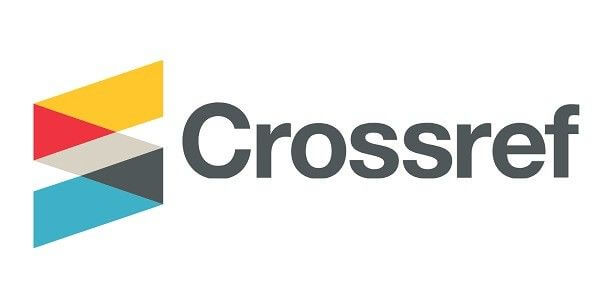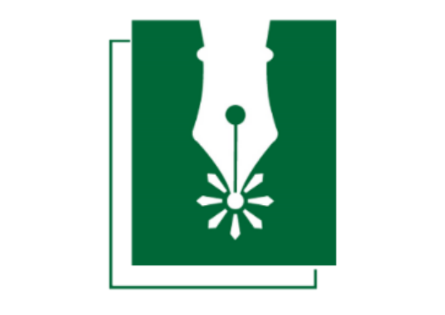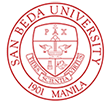“Going beyond the margin” work ecology model: A Filipino representation of gay instructional leaders in basic education
Abstract
There has been an abundance of foreign studies on queer leadership in schools, but significantly fewer in the country. This study was initiated for this very purpose: to have a vivid description of who the Filipino gay instructional leader is as embodied in his/her work ecology model. Through the use of grounded theory, the inclusion criteria were employed to ensure a thorough exploration of the experiences of seven (7) gay instructional leaders in leading their units. The leaders were selected using theoretical sampling to develop categories that explain the specific phenomenon and form a rich and nuanced theory. Throughout the process, the researcher considered theoretical sensitivity, purposeful sampling techniques, constant comparison, theoretical saturation, and flexibility in data collection and analysis. Queer leadership, as was grounded in the data collected, meant being challenged by the culture of heteronormative leadership in the country, which includes (but is not limited to) encountering pressure to conform to traditional gender roles, navigating toxic work environments, and facing gender stereotyping and biased treatment. Further, Filipino gay instructional leaders are distinguished in their PRIDE qualities-- Passion, Resilience, Inclusivity, Diversified Role as a Leader, and Empowering Others. These qualities help them to serve and lead schools effectively. The "Going Beyond the Margin" work ecology model, created using these same grounded qualities of a Filipino gay leader, is centered on inclusivity and symbolizes the progress made by these leaders toward achieving complete acceptance and acknowledgment of what they can contribute. However, there remain some individual and systemic issues in leadership that the Filipino gay leader continues to traverse.
References
Añonuevo, R. G., & Digo, G. S. (2023). Identities and roles of gay and bisexual teachers in rural Philippines. East Asian Journal of Multidisciplinary Research (EAJMR), 2. (1299–1312). https://journal.formosapublisher.org/index.php/eajmr/article/download/3507/3215/11831 DOI: https://doi.org/10.55927/eajmr.v2i3.3507
Boyd, C. O. 2001. Phenomenology the method. In P. L. Munhall (Ed.), Nursing research: A qualitative perspective (3rd. ed., pp. 93–122). Sudbury, MA: Jones and Bartlett
Breckenridge, J., & Jones, D. (2009). Demystifying theoretical sampling in grounded theory research. Grounded Theory Review, 8(2), 113-126.
Bullock, Alison (2016). Conduct one-to-one qualitative interviews for research. Education for Primary Care, 27(4), 330–332. doi:10.1080/14739879.2016.1176874 DOI: https://doi.org/10.1080/14739879.2016.1176874
Canfield, E. C. (2019). The paradox of Queer Leadership: Leading toward the margins in higher education. (Dissertation, Southern Connecticut State University). https://journals.sagepub.com/stoken/rbtfl/rpH2Y5wU7x1Vc/full
Chamberlain, J. B. & Kothlow, A. D. (2012). Disrupting Heteronormativity in schools (Masters Thesis, University of British Columbia, Vancouver). Retrieved from http://blogs.ubc.ca/educ452inquiryiii/files/2016/06/Disrupting-Heteronormativity-in-Schools-1.pdf
Charmaz, K. (2014). Constructing grounded theory (2nd ed.). London: Sage.
Chee, C. S., Noor, A. M., & Ahmad, A. (2012). Empathy and spirituality: Is there a gay advantage? Scientific & Academic Publishing. All Rights Reserved., 2013; 3(1): 18-22(p-ISSN: 2163-1948 e-ISSN: 2163-1956). https://doi.org/10.5923/j.ijpbs.20130301.03
Cochrane, K. (2022, November 18). Heteronormative meaning: What does heteronormative mean? Plus, 8 examples to know. Teen Vogue. https://www.teenvogue.com/story/heteronormativity-gender-identity-sexual-orientation
Competente, R. J. T. (2020a). [OPINION] The need for our schools to be Homonormative. Retrieved from https://www.rappler.com/voices/ispeak/opinion-need-schools-homonormative-gbtq?fbclid=IwAR36fmmP8YJfgveQng4jA5HGGnz3oKdPZdmkuqepGoXFdjp9-XZ9T3GS5Rg
Competente, R. J. T. (2020b). Are DepEd-Naga City teachers homonegative? Not really, but…. Retrieved from http://webcache.googleusercontent.com/search?q=cache:Mex75ijntaUJ:https://gadzetteonline.com/2020/05/25/are-deped-naga-city-teachers-homonegative-not-really-but/&hl=en&gl=ph&strip=1&vwsrc=0
Corbin, J., & Strauss, A. (1990). Grounded theory research: Procedures, canons, and evaluative criteria. Qualitative Sociology, 13, 3-21. doi: 10.1007/BF00988593 DOI: https://doi.org/10.1007/BF00988593
Creswell, J. W. (2013). Qualitative inquiry & research design choosing among five approaches. (Third Edition). SAGE Publication. United States of America
Dillman D.A., Smyth J.D., Christian L.M. (2014). Internet, mail, and mixed-mode surveys: The tailored design method. (4th Edition). Hoboken, NJ: John Wiley & Sons, Inc. DOI: https://doi.org/10.1002/9781394260645
D.O. No. 32, s. 2017 (2017). Department of Education Order No. 32, s. 2017. Retrieved from https://www.deped.gov.ph/2017/06/29/do-32-s-2017-gender-responsive-basic-education-policy/
Erlandson, D. A., Harris, E. L., Skipper, B. L., & Allen, S. D. (1993). Doing naturalistic inquiry: A guide to methods. Newbury Park, CA: SAGE
Executive Oder no. 100 s. 2019 (December 19, 2019)
Galamgam, M., Bautista, J., Eblacas, I., & Rosario, E. (2021). An analysis on the implementation of gender responsive Basic Education Policy. This Journal Is Produced by the Asian Society of Teachers for Research, Inc, 5. https://aseanresearch.org/downloads/astr/publication/5/3%20GALAMGAM.pdf
Gamboa, L.C. L., Ilac E.J., Carangan, A. M. J. M. & Agida, J. I. S. (2020). Queering public leadership: The case of lesbian, gay, bisexual and transgender leaders in the Philippines. 0(0) 1–21. DOI: 10.1177/1742715020953273 DOI: https://doi.org/10.1177/1742715020953273
Garcia, J. N. C. (2008). Philippine Gay Culture: Binabae to Bakla, Silahis to MSM (2nd ed.). Quezon City: The University of the Philippines Press
Glaser, B., & Strauss, A. (1967). The discovery of grounded theory: Strategies for qualitative research. Chicago: Aldine. DOI: https://doi.org/10.1097/00006199-196807000-00014
Guest, G., Bunce, A. & Johnson, L. (2006). How many interviews are enough?: An experiment with data saturation and variability. , 18(1), 59–82. doi:10.1177/1525822x05279903 DOI: https://doi.org/10.1177/1525822X05279903
Hayward, C., Simpson, L., & Wood, L. (2004). Still left out in the cold: Problematising participatory research and development. Sociologia Ruralis, 44, 95–108. DOI: https://doi.org/10.1111/j.1467-9523.2004.00264.x
Hooks, B. (1984). Feminist theory from margin to center. South End Press. https://funceji.files.wordpress.com/2017/08/bell_hooks_feminist_theory_from_margin_to_centebookzz-org_.pdf
LGBT Foundation (n.d.). Ethical research: good practice guide to researching LGBT communities and issues [PDF]. LGBT Foundation. https://lgbt.foundation/downloads/EthicsGuide
Lincoln, Y. S., & Guba, E. G G.1982). Establishing dependability and confirmability in naturalistic inquiry through an audit, https://files.eric.ed.gov/fulltext/ED216019.pdf
Lincoln, Y. S., & Guba, E. G. (1985). Naturalistic inquiry. Beverly Hills, CA: Sage DOI: https://doi.org/10.1016/0147-1767(85)90062-8
Macasa, N. J. (2020). Stride and pride: Demands of Filipino Queer Scientist. Retrieved from https://medium.com/up-scientia/stride-in-pride-demands-of-filipino-queer-scientists-4f403439298e
Mertens, D. M. (2005). Research and evaluation in education and psychology: Integrating diversity with quantitative, qualitative, and mixed methods (2nd ed.). Thousand Oaks, CA: Sage Publications.
Nowell, L. S., Norris, J. M., White, D. E., & Moules, N. J. (2017). Thematic analysis: Striving to meet the trustworthiness criteria. International Journal of Qualitative Methods, 16(1), 1-13. DOI: https://doi.org/10.1177/1609406917733847
Ostick, D. (2011). A grounded theory of lesbian and gay leadership self-efficacy development [Unpublished doctoral dissertation] University of Maryland. http://hdl.handle.net/1903/12233
Patton, M. Q. (2002). Qualitative research and evaluation methods (3rd ed.). Thousand Oaks, CA: SAGE
Ponterotto, J. G. (2006). Brief note on the origins, evolution, and meaning of the qualitative research concept thick description. The Qualitative Report, 11(3), 538-549.
Pryor, J. T. (2020). Queer advocacy leadership: A queer leadership model for higher education. Journal of Leadership Education. 19(11). DOI: 10.12806/V19/I1/R2 DOI: https://doi.org/10.12806/V19/I1/R2
Reyes, M. E., Balacuit, M. J., Carangcarang, A., Diayon, M. J., & Lerin, R. M. (2012). Filipino gay stereotypes in mainstream and independent films. Advancing Literature & Communication Research, 1, Online ISSN 2094-9642. https://app.scholasticahq.com/api/v1/attachments/484/download DOI: https://doi.org/10.7828/alcr.v1i1.172
Ryan, B. (2022). Gay men outperform straight counterparts in nearly every academic measure, study finds. NBC News. https://www.nbcnews.com/nbc-out/out-news/straight-men-face-educational-crisis-gay-men-excel-academically-study-rcna18018
Strauss, A., & Corbin, J. (1998). Basics of qualitative research: Techniques and procedures for developing grounded theory (2nd ed.). Thousand Oaks, CA: Sage
Talon, R., Carreon, Joseph & Diragen, G. T. (2020). A phenomenological inquiry of gender and development in the classroom program. Retrieved March 26, 2024, from https://www.researchgate.net/publication/340967164_A_PHENOMENOLOGICAL_INQUIRY_OF_GENDER_AND_DEVELOPMENT_IN_THE_CLASSROOM_PROGRAM?fbclid=IwAR1wObIiF6zniyvKB4GxjH-CBdkRSIR4Oq7Hedn1_MXj-HNtr8ia5JYnUpQ
Thepsourinthone, J., Dune, T., Liamputtong, P., & Arora, A. (2020). The relationship between masculinity and internalized homophobia amongst Australian gay men. International Journal of Environmental Research and Public Health, 17(15), 5475. https://doi.org/10.3390/ijerph17155475 DOI: https://doi.org/10.3390/ijerph17155475
Tic, I. A., & Tic, I. A. (2021, February 17). Gender balance in research, why is so important? | IQTC - The Institute of Theoretical and Computational Chemistry of the Universitat de Barcelona. IQTC - the Institute of Theoretical and Computational Chemistry of the Universitat De Barcelona |. https://www.iqtc.ub.edu/news/gender-balance-in-research-why-is-so-important/?fbclid=IwZXh0bgNhZW0CMTAAAR0_NuMoMHIWLGt4GtEqCqwIIYddIKdKNIPe5dpihVjPgiPtP1j10rgIjpg_aem_AVp4sCYxkztEduExxEr8jjJtX_t0e-gg_5jI8z9eS-W7xMSvCpn1ToD173F_3CY9SST-sxaJftJYQX_6Jtf-wKGo#:~:text=The%20integration%20of%20sex%20and,of%20innovation%20in%20the%20market
UNDP, USAID. (2014). Being LGBT in Asia: The Philippines Country Report. Bangkok
- PDF | 513
- Abstract Views | 565
Published
How to Cite
Issue
Section
Copyright (c) 2024 Mark Valdevieso

This work is licensed under a Creative Commons Attribution-NonCommercial-NoDerivatives 4.0 International License.











